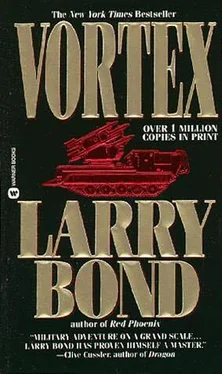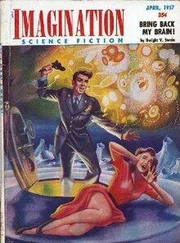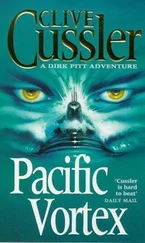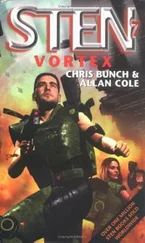“All right, gentlemen. We’re under way in three days for Durban. Start loading. “
DECEMBER 17-HEADQUARTERS, CUBAN EXPEDITIONARY FORCE, POTGIETERSRUS
“Every piece of data we have indicates the imperialists will land at
Durban, Comrade General. ” Colonel Vasquez pointed to the map.
“It has the best beaches and port facilities in all of South Africa. Plus, we know that the Boers have had a very difficult time with civil unrest and guerrillas in the area.”
He hesitated and then went on, “Durban is also too far away for us to do anything to interfere with their invasion.”
“Agreed, Colonel. An excellent analysis.” Vega looked disgusted.
“Now tell me what we can do with this fact.”
Up to now, this war had been fought on land and in the air. By adding a naval dimension, the Western allies had given themselves a freedom that neither Cuba or South Africa could hope to match. Operating without interference off the coast, the Allies could cause both belligerents great pain.
Even the Soviet Navy could not challenge the Western ships off the Natal coast. The Soviets did not want to risk a direct war with America and
Britain. They were willing to spend a few rubles and out-of-date equipment, but spilling Russian blood was out of the question.
Part of their reluctance to confront the West was certainly because of the distance from Russia’s ports. Their navy was structured for operations close to Soviet shores, in combination with land-based aircraft. Their chances of success against two carrier battle groups were just about nil.
Vega suspected that Castro hadn’t even bothered to ask for the Soviet
Union’s help. Just as well, anyway, he thought, They would only have refused us.
Vega pursed his lips.
“The devil of it is, Colonel, that I don’t even know if we should help the Americans or try to stop them.”
Vasquez took his commander’s statement as a request for information.
“Certainly, an Allied landing would draw off some of the Afrikaner troops now facing us.”
The Cuban general nodded sharply.
“Precisely, Colonel.” He slapped a hand down hard on the desk.
“Right! We cannot stop this invasion … so we’ll make use of it for our own ends. We’ll delay our own attack until after the Americans and British land.”
He laughed harshly.
“Let us allow the capitalists to stop Afrikaner bullets for a change. Once they’re ashore, we’ll crush what’s left at
Naboomspruit and drive hard for Pretoria.” He noticed Vasquez’s dutiful smile.
“Something troubles you, Comrade Colonel?”
“Yes, sir.” Vasquez pointed to the waters off South Africa’s southeast coast.
“Soviet satellite photos show that the American carrier
Independence has already left Cape Town to join the Carl Vinson. Soon they will be in easy striking distance of Durban, Pretoria-perhaps even our lines here. If we get too close to Pretoria, planes from those carriers could hit us.”
Vega’s tone was final.
“We are running out of options. All we can do is push as hard as we can and leave the rest to the uncertainties of war.”
DECEMBER 18-PROVISIONAL HEADQUARTERS, NATAL MILITARY COMMAND, DURBAN,
SOUTH AFRICA
Worried-looking men in military uniform hurried back and forth through
the halls and offices of Durban’s fortified police headquarters. Phones rang, maps were updated, and defense plans were changed in a . dizzying cycle of ever increasing urgency. Vorster loyalists still hiding in the Cape Town area had confirmed their worst fears-America’s aircraft carriers and amphibious ships were steaming eastward, preparing for another landing somewhere along South Africa’s coast.
Brig. Franz Diederichs stood in his office, watching with cold, detached contempt as his subordinates tried desperately to find ways to stop the unstoppable. Intelligence estimated that the Americans and British planned to storm ashore with at least a reinforced Marine division-backed by more than two hundred carrier-based planes and the guns of more than a dozen warships.
In contrast, he had scarcely a corporal’s guard to oppose them. Five understrength companies of security police. Three artillery batteries of superb G-5 and G-6 guns. And three weak infantry battalions already worn down by months of guerrilla war with the Zulus and by days of bloody street fighting during the city’s November rising. All were short on men and heavy weapons.
He grimaced. Common sense alone should tell the idiots on his staff that they had no chance of achieving victory at least not victory as it was ordinarily understood.
Logic argued that the Allies were moving on Durban itself. The city’s airfield and harbor were perfect staging points for an all-out Allied drive on Johannesburg and Pretoria. In fact, they were the only possible staging points. Essentially, all main roads on the Natal coast led to
Durban. Only there did they blend together into a single superhighway stretching north to South Africa’s mineral-rich interior.
Logic also argued that the Allies, though long on men and materiel were short on time. Even capturing the city would still leave this General
Craig and his men more than six hundred kilometers from their final objectives. And before the Americans and British could push farther inland, they’d need a secure supply line-the kind one could only build with unimpeded access to a major port.
Diederichs nodded slowly to himself. He and his soldiers couldn’t win the upcoming battle, but they could at least deny their enemies a quick victory. He leaned over his desk, studying a series of charts and diagrams showing Durban’s port facilities.
For more than a week now, his engineers and gangs of conscripted black and Indian laborers had been working night and day to wreck the harbor beyond easy repair. Some had planted demolition charges to destroy cargo-handling equipment along the waterfront itself. Others stood ready to scuttle freighters and tankers already trapped by the American blockade-b locking both the harbor’s narrow entrance and all its docks and anchorages.
Once the first waves of the Allied invasion force touched down,
Diederichs planned to pull the bulk of his small garrison into a perimeter enclosing most of Durban’s central city. Even with their overwhelming numbers and firepower, it would take the Uitlanders days to dig his troops out of their fortified skyscrapers and beachfront hotels.
And until they did, they couldn’t possibly begin repairing the damage to the all-important port facilities. At the same time, his artillery well hidden among the forested foothills of the Drakensberg Mountains-would interdict the Louis Botha Airport. Periodic barrages of high-explosive shells would make it impossible for the Americans to land their huge
C-141 and C-5 cargo planes.
With any luck, the Allied drive on Pretoria would soon sputter and stall-strangled at birth by a lack of food, fuel, and ammunition.
The Afrikaner brigadier smiled crookedly at that thought. Whatever the result, he wouldn’t be alive to see it. He planned to die fighting with his soldiers. Retreat out of the city was unthinkable and unsurvivable.
He didn’t have any illusions about his own government’s attitude toward unsuccessful officers. Pretoria’s firing squads would soon make short shrift of the man who’d lost Durban.
Surrender to the Americans or the British was equally unthinkable. He had no intention of appearing as chief defendant at a socalled war crimes trial. If necessary, he’d kill himself first, His thin lips creased in an ugly snarl. Better by far to
die by one’s own hand than to stand in chains before swaggering, kaffir-loving conquerors.
Diederichs straightened his shoulders and turned back to his work. Durban’s barricades, trenches, and fortified buildings would make the city more than just a graveyard for his own ambitions and dreams. They would end Allied hopes for a quick and bloodless end to the war in South Africa.
Читать дальше












